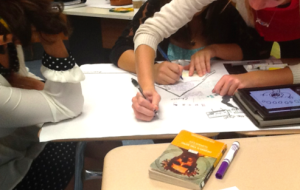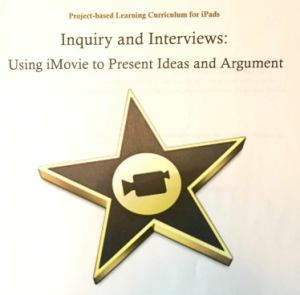 10th Grade Honors English
10th Grade Honors English
World Literature: Local Concerns and Global Questions
Website: www.mrsdavison.typepad.com/grade10
Twitter: https://twitter.com/english10h
What can literature teach us about the world and ourselves?
My goal as your teacher is to create a communal environment for reading, writing, thinking and learning. We will explore a body of literature that spans various time periods and cultures, while honing the technical skills required of an advanced secondary education. Throughout the year we will always return to our essential questions in order to explore literature as the craft of storytelling and wordplay, but also as primary sources that have the ability to teach us about culture, politics, and history.
Research:
In addition to our whole-class study of the concepts and texts listed below, each student will also be required to submit an original work of literary criticism based on the writing of one author. The students will choose an author, independently read 2-3 full-length texts by that author, research literary criticism published about the author, and develop their own scholarly response.
Texts:
Each unit of study for the year will focus on the literary concept of the hero in different times and places. Here are some of the texts we will be studying this fall:
In Classical Times: Ancient Greece
- Core Text: Oedipus Rex, Sophocles (play)
- Supplemental texts will include Medea, Euripides (play); Mythology, Edith Hamilton (non-fiction); Apollo, George Balanchine (ballet); Ancient Greek Vases & Sculpture
In Medieval Times: England, Persia, Japan
- Core Text: Macbeth, William Shakespeare
- Supplemental texts will include excerpts from One Thousand and One Nights, The Tale of Genji, & Sir Gawain and the Green Night
In Romantic Times: America, England, Russia
- Core Text: Frankenstein, Mary Shelly
- Supplemental texts will include excerpts from “Nature,” Ralph Waldo Emerson; poetry of Samuel Taylor Coleridge, Percy Bysshe Shelley, Lord Byron, and John Keats; and excerpts from Tales of the Late Ivan Petrovich Belkin, Alexander Pushkin.
In “Magical” Times: Russia, South America, Cross-Cultural
- Core Text: Bless Me, Ultima, Rudolfo Anaya
- Supplemental texts will include “Metamorphoses,” Franz Kafka, Life of Pi, Yann Martel


 10th Grade Honors English
10th Grade Honors English